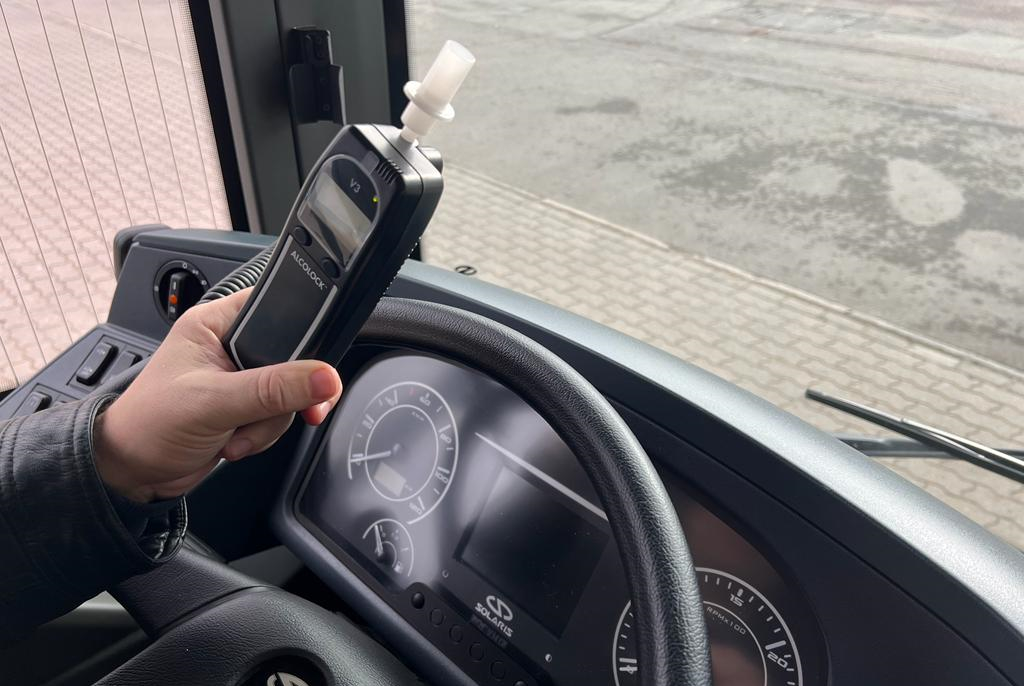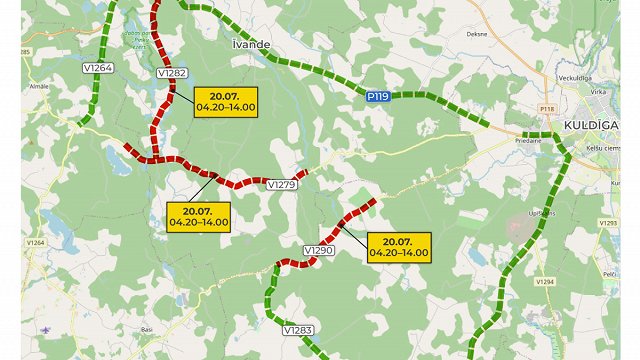“Nothing bad will happen,” thought Arnis , who lost his driver's license for drunk driving. The intoxication was more than 1.5 pro-mille at the time. He did not cause an accident, but he did sit behind the wheel also after the license had been lost. “Many do,” he encouraged himself at the time. And many in Latvia, unfortunately, do so.
The grim statistics have been reported numerous times, with about 3,500 drivers being caught under the influence every year. The majority – more than 2,000 – have a blood alcohol concentration above 1.5 pro-mille.
Last year, 803 drunk drivers were involved in road accidents where 252 people were injured but 11 were killed. This year's statistics haven't yet been compiled. If the drunk driver has caused an accident in which a person has been injured or killed, he or she shall be held criminally liable, as well as if the person without the driver's license has driven the car intoxicated.
The current law provides that drivers under the influence of 1.5 pro-mille are subject to a fine and a suspension of license for a period of five years. Until July 2020, drunk drivers were administratively detained. It was abolished because it was too expensive for the country.
The lost licenses are restored after time. State Police said there had been situations in which one person was deprived of the license several times. For example, the Road Traffic Safety Directorate (CSDD) pointed out that last year the license was restored by 1,140 drunk drivers, and numbers would be similar this year.
Criminal liability for drunk drivers has been discussed for years, and now it is finally on the parliament's agenda. Traffic safety expert Oskars Irbītis said about the planned criminal reliability: “The penalties can be harsher on condition there is someone applying them.” Irbītis works with people who want to return to traffic after being deprived of their license. These drivers usually say they haven't felt the presence of the police, so they were driving intoxicated, said Irbītis.
"For many, it feels like they cannot be punished [..] because in the flow we don't see patrolling police. One has committed this infringement once, twice, for the third time, but only been caught after the tenth time: this person is under the illusion of impunity. I am concerned that if we increase these penalties, yes, many will be affected, but will we get to those who are chronic offenders?"
Parliament deputies say that criminal charges could prevent more than 500 people a year from sitting behind the wheel under the influence of one and a half. It's a quarter of all the punished drivers over 1.5 pro-mille each year. Meanwhile, the Justice Ministry estimates the penalty could deter 700 people a year.
When Arnis was drunk driving, he was not caught by the police the first time. But when he was caught, he was upset that he'd been caught, not that he had committed an offense.
“I had driven without a license and I had been drunk too. I just hadn't been caught before. It was just such a disappointment that I'd come across the police unluckily, and I was angry about that. But there was no real understanding I was doing a bad thing at the time,” Arnis said.
He got his license back after 15 yeas and spent 10 years in prison, where he engaged in resocialization programs to treat his alcoholism. In his opinion, the most appropriate punishment for drunk drivers is the treatment of the illness.
"Every crime must be punished accordingly. What should be done on the part of the State: getting a penalty so that the purpose of the penalty is also achieved. During the execution of the sentence, to have the knowledge of what has happened. Did they do this crime being addicted? When they understand what is happening to them, it may be easier for them to make a decision – to do it or not to do it in the future. I thought I didn't have an addiction either. Every time I thought I wasn't going to sit at the wheel. But dozens of times it happened."
The authors of the draft law predict that about a third of those caught could be subject to fines or real deprivation of liberty. Meanwhile, about 70% could get community sevice, probation monitoring, and conditional custody. That means the number of customers of the State Probation Service would grow by about 1,000 a year. Of those, 6% could be under probation supervision.
The Probation Service said they were currently studying foreign programs tailored specifically for drunk drivers. If the draft legislation came into force, it would be necessary to adapt such a program.
It is planned that a person who drove a vehicle under the influence of alcohol or refused to be tested for the effects of alcohol, narcotic, psychotropic, toxic and other intoxicating substances will have their vehicle confiscated. In the event that the criminal offense is committed with a vehicle belonging to another person, the full or partial value of this vehicle is expected to be recovered from the culprit.






























